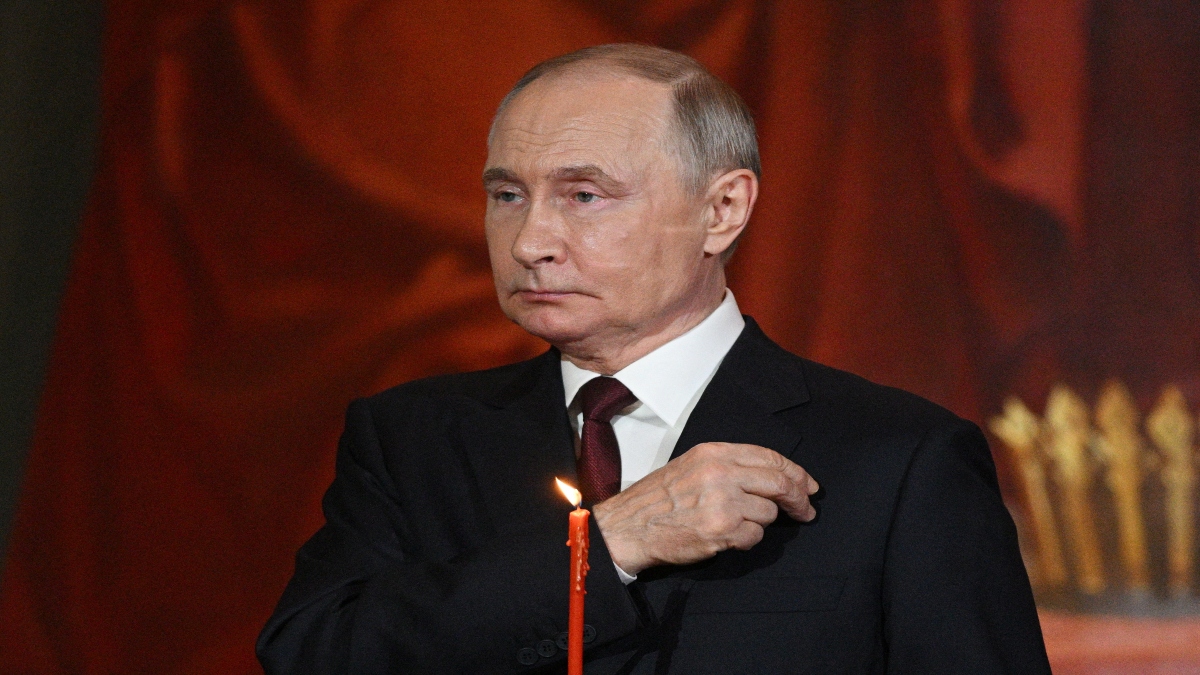Ukrainian President Volodymyr Zelenskyy has put Russian leader Vladimir Putin in a tough spot.
Zelenskyy accepted Putin's offer of direct talks between the two warring countries, but raised the stakes by saying that talks should be at the level of leaders. He has now put the ball in Putin’s court.
Turkey is set to host the talks on Thursday in capital Ankara. While Zelenskyy has said he would be in the city to attend the talks, Kremlin has not confirmed whether Putin would be attending or a presidential envoy or a minister. Zelenskyy has said he would only take part in the talks if Putin would attend.
As if Zelenskyy’s attendance itself was not problematic enough for Putin, the Ukrainian president has also called upon US President Donald Trump to attend the talks. Trump has said he might attend the talks as he would be in the extended neighbourhood — he is on a multi-nation tour of West Asia.
How Zelenskyy put Putin in a bind
Putin on Sunday said that Russia sought direct talks with Ukraine in Turkey to “eliminate the root causes of the conflict” and “to achieve the restoration of a long-term, lasting peace”.
Putin further said, “We are proposing that Kyiv resume direct negotiations without any preconditions. We offer the Kyiv authorities to resume negotiations already on Thursday, in Istanbul.”
Zelenskyy, however, raised the stakes by saying that he would attend the talks and called upon Trump to join too. He also called upon Russia to agree to a 30-day ceasefire, a proposal originally floated by Trump and backed by Ukraine and its European allies. Russia has not committed to any such ceasefire.
Putin’s problems with direct talks are three-fold.
Firstly, Putin rejects Ukraine’s nationhood and considers Zelenskyy as an illegitimate ruler. If he enters into direct talks with him, he would be legitimising not just Ukraine as a nation but also Zelenskyy as a head of state.
Impact Shorts
More ShortsSecondly, if Putin skips the talks and Trump decides to attend, he will lose face. Zelenskyy would get another one-on-one with Trump like their meeting in the Vatican City. It would be seen as Russia rebuffing the peace process.
Thirdly, Putin will have direct ownership of talks if he attends. He would not want that. When envoys or mid-level officials hold talks, they have to return for consultations with the leaderships, but, if Putin would be there, he would be required to take calls during the talks. Putin would not want that as all indications from his suggest that he has no intention to seek peace — at least the type of peace that both sides would agree to.
Last month, the Trump administration proposed a peace plan that included some of the biggest demands of Russia, such as ruling out Ukraine’s membership of Nato, legally recognising Russia’s occupation of Crimea, and de facto recognition of Russia’s occupation of four regions Luhansk, Donetsk, Kherson, and Zaporizhzhia. Russia rejected the proposal and asserted maximalist demands.
Among those demands were limits on Ukraine’s military, an overhaul of the Ukrainian government and constitution, and ouster of Zelenskyy’s government, and legal recognition, not de facto recognition, of all Ukrainian territories under Russian occupation.


)

)
)
)
)
)
)
)
)



